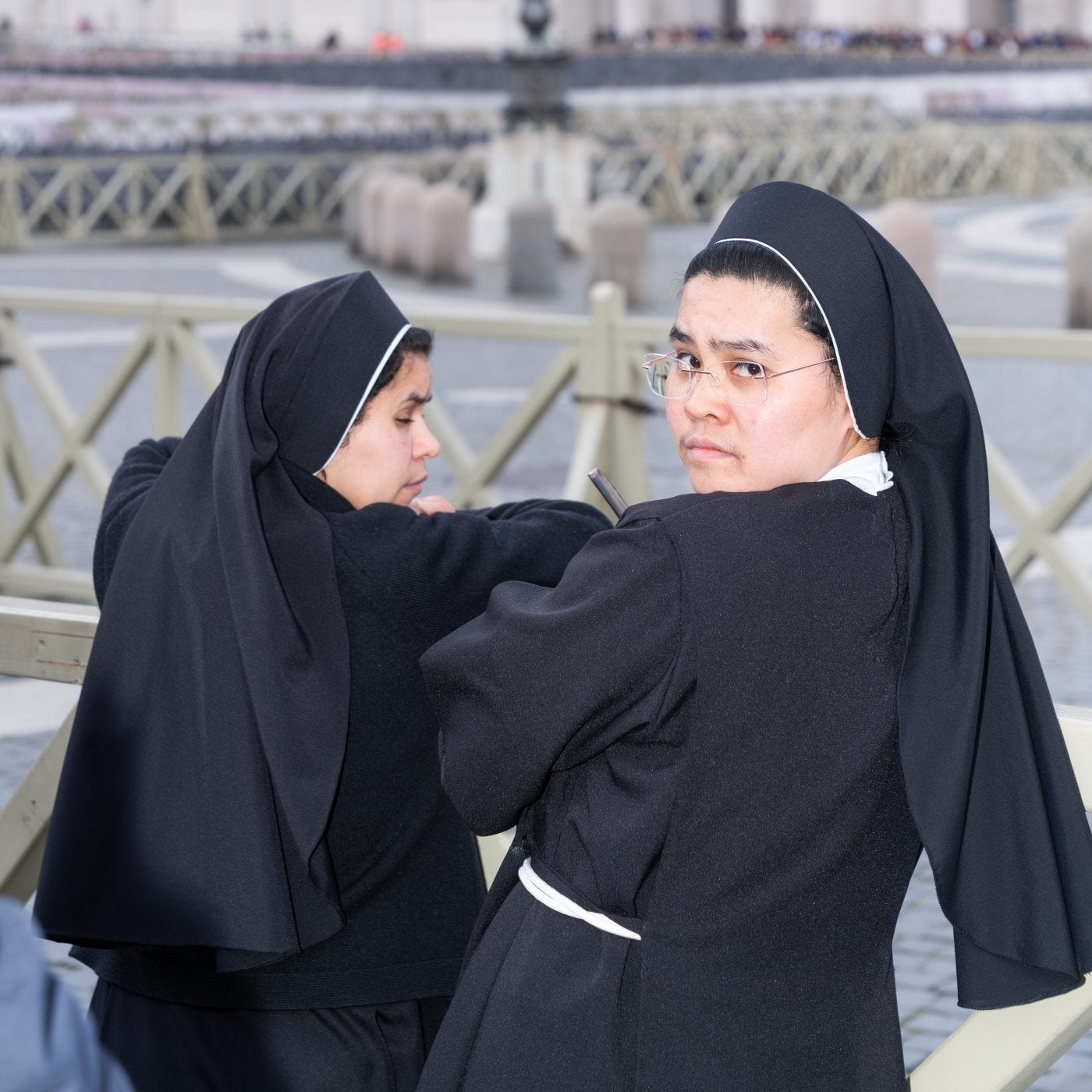WSJ: Pope’s Mourners See His Death as Crossroads for Catholic Church
The debate on whether the church should adapt to modernity or assert its traditions has been revived
VATICAN CITY—As tens of thousands of Catholics waited in hourslong lines to pay their respects to Pope Francis in St. Peter’s Basilica, many were also debating a looming question: What direction should the Catholic Church take under the next pope?
The late pontiff’s emphasis on social and economic justice, advocacy for migrants and openness to debate on homosexuality and other contentious topics pleased liberal Catholics but distressed conservatives.
His successor will inherit a deep rift between those who believe the church should adapt to modernity and those who believe it should preserve its traditional identity.
“I believe that the future of the church is a return to tradition and a greater openness to God,” said Łukasz Chechła, who was visiting Rome from Poland, as he exited St. Peter’s Basilica, where Francis’ body is lying in state until Friday night.
In contrast, Sister Doris Odeh, a nun from Nigeria, hopes the next pope will follow in Francis’ footsteps by being humble and by calling attention to the plight of the poor, the vulnerable and migrants.
“He made himself available to the people. He welcomed migrants as children of God,” said Sister Odeh. “The best thing we can hope for in the new pope is that he will finish what Pope Francis wasn’t able to complete.”
Sister Odeh was one of around 250,000 people who streamed into the basilica between Wednesday morning, when the body was placed there, and Friday evening, when the basilica closed to the public. People often queued for hours for a quick glimpse of the pontiff.
The mood was at times somber—with some of the faithful crying as they passed Francis’ body—and at other times celebratory, as people remembered his legacy and spoke of their attachment to the church. Francis’ coffin will remain in the basilica until his funeral on Saturday.
The debate will play out in the congregations of cardinals who are already gathering in Rome to prepare for a conclave, expected in early May. It is also taking place on the cobblestone streets outside the marble halls of the Vatican.
“We need to bring some of this polarization to an end. People have to develop relationships with people who have different points of view,” said Father Robert Sirico, president emeritus of the Acton Institute, an American faith-based think tank.
“And we need to have some clarity—moral and doctrinal clarity—on symbols and gestures that have confused people,” said Sirico, voicing a criticism of Francis that is shared by many conservative Catholics.
Other mourners in St. Peter’s Square said they would like the next pope not only to uphold Francis’ legacy but to take bolder steps toward progressive changes, such as by allowing women’s ordination, loosening the requirement of priestly celibacy and being more welcoming to same-sex couples.
“We have to be more open and reach everyone,” said Cristiana Tavares, a 30-year-old civil servant from the Portuguese city of Porto who was in Rome on a religious pilgrimage. “I don’t see a problem accepting homosexuals. LGBTQ+ are welcome to our church.”
A more inclusive church, said Tavares, will help bring young people back to the faith in Europe, where religious affiliation has been steadily declining. Focusing on the youth “should be the main priority” for the next pope, she said. “There are less and less of us.”
Francis declared zero tolerance for priests who committed sexual abuses, but many Catholic faithful—progressives and conservatives—said he should have taken more action. Many want the next pope to tackle once and for all the sex-abuse scandals that have plagued the church for decades.
“It’s an issue that still hasn’t been dealt with properly,” said Francis Meehan, 68, a retiree who is an active member of his local parish in Ireland. He said he personally knows of a priest who was never punished for his actions despite repeated abuses. “Priests are still being shielded,” said Meehan, who would like the next pope to take firmer action to punish abusers, including by permanently removing them from ministry.
Veronica Liotta, a pilgrim from Sicily, said the church should be more flexible in some of its moral teachings. “There is too much rigidity,” she said.
She would like the next pope to be Italian. Around 80% of the 266 previous popes have come from Italy, of whom the last, Pope John Paul I, died in 1978. “That would be perfect,” said Liotta. “That would make us feel closer to him. If he comes from our land, he would feel like family.” It could also help revive the appeal of the church among young Italians, she said.
Her friend and fellow pilgrim Carmelo Piterá disagreed. “It’s not important if he is Italian or if he isn’t Italian,” he said. “What matters is that he has the right spirit.”



